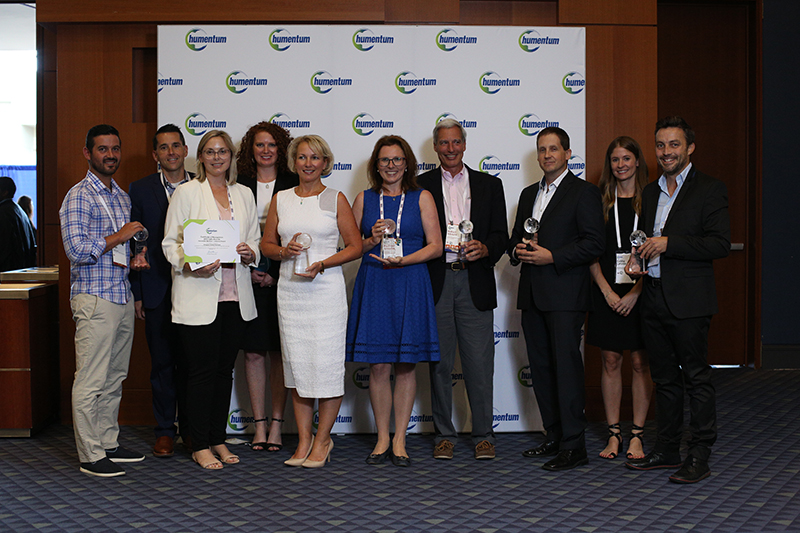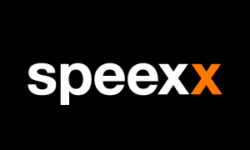
More than 1,100 development practitioners from nearly 200 member organizations attended Humentum’s annual conference at the Walter E. Washington Convention Center this year, making it one of the largest gatherings of professionals in the international development and humanitarian community in the U.S.
The Humentum Operational Excellence Awards were established in 2010 (originally the InsideNGO Operational Excellence Awards) to recognize professionals within the development sector who are innovating, collaborating, and ensuring operational excellence within their organizations.
As part of the OpEx DC 2019, Humentum announced that Speexx, a Humentum Learning Services Partner and a global provider of
“We are pleased to recognize Speexx with the Partner of the Year Award,” said Humentum CEO Tom Dente. “We couldn’t do the work we do without our Industry Partners. Speexx exemplifies the importance of operational excellence to better deliver and sustain results.”
Rethinking the work experience with soft skills training
While automation is creating new roles and new opportunities, there are still many people who need to reskill in order to fill these roles. According to global HR and learning analyst Josh Bersin, it typically takes between 18 – 20 months to reskill people but companies are struggling to do this.
Amazon has announced it will spend $700 million retraining a third of its US workforce by 2025, a move that has been attributed to its need to find new roles for employees whose jobs face automation. However, some observers have pointed out that the announcement may just as much have to do with Amazon’s need to prove it is a good employer, with some workers going on strike over pay and conditions while the e-commerce giant struggles to recruit specialist staff.
Bersin refutes the idea that technology is taking over. In his view, “People are taking over the world . . . Digital transformation is not about

Driving a new
Changing the way we think about the work experience involves embracing older people as the birth rate falls, enhancing diversity and inclusion and ensuring employees are satisfied with their work experience. That very much includes building a company culture of learning that addresses individual employee needs and the skills they want to build on.
The skills that organizations need in order to be productive and move forward, while at the same time building employee engagement, include soft skills such as communication skills, encompassing language as well as collaboration, negotiation and leadership skills. Providing soft skills training is as much about getting people excited to be at work, as it is about meeting their needs, expectations and business objectives. Here are three ways of driving a new
- Provide access to learning tools to the entire workforce. Make sure all employees can access learning content that is highly relevant to their role, interests and needs, including communication and language skills, wherever they are in the world.
- Deliver continuous visibility of the needs of users. Needs assessments and skills gaps analysis should not be a one-time snapshot. It is key that the learning platform continues to learn and evolve, offering a quick and efficient way to identify the gaps and the topics that individual employees are interested in. Combine learner feedback on what they think their skills gaps are with information about the job role, organizational structure and individuals’ interests and career aspirations, for a complete needs assessment.
- Make learning truly user-focused. Traditionally, managers work with employees to identify skills gaps and then go to HR and L&D to request training. Commonly, managers who are the most proactive and shout the loudest win the highest budget. This process is simply too time-consuming for modern business. Now, with Speexx Essentials, users can identify their own skills gaps and make a direct request for learning provision to address their skills requirement.

Focus on people skills
Productivity tends to stall at a time of change. Bersin points out that during the process of digital transformation, applying new tech to old ways of working can actually result in a reduction in productivity. Leaders must lead the way in changing how things are done. Many companies are changing old school, top-down hierarchies to flatter networks of teams working on a project-by-project basis, creating and dismantling teams as necessary. Leadership skills and effective communication and soft skills must be at the heart of positive change in the work experience.
Organizations that report high engagement
Consumers too are increasingly interested in the values of companies they purchase from. High performing, high productivity organizations are now founded on shared values and purpose. Communicating these effectively to a global workforce and customer base is key to creating a work experience that works for all.
For more information visit:
www.speexx.com
www.linkedin.com/company/speexx/
Twitter: @speexx
About Speexx – empowering communication
Speexx uses groundbreaking AI technology to provide language skills testing, training and continuous performance support to global top 1,000 companies driving better ROI on training budgets and workforce productivity. Unlike traditional training providers, Speexx uses advanced technology to build, grow and maintain the language skills that matter.
More than 8 million users in 1,500 organizations around the world – including UNHCR, Adecco, Daimler and Credit Suisse – use Speexx to learn a language smarter and deliver results on time. Speexx is headquartered in Munich/Germany with offices in London, Madrid, Milan, Paris, Sao Paulo, New York and Shanghai.
Article Submitted by
Christina Quintanilla
Speexx, digital publishing AG
Germany
